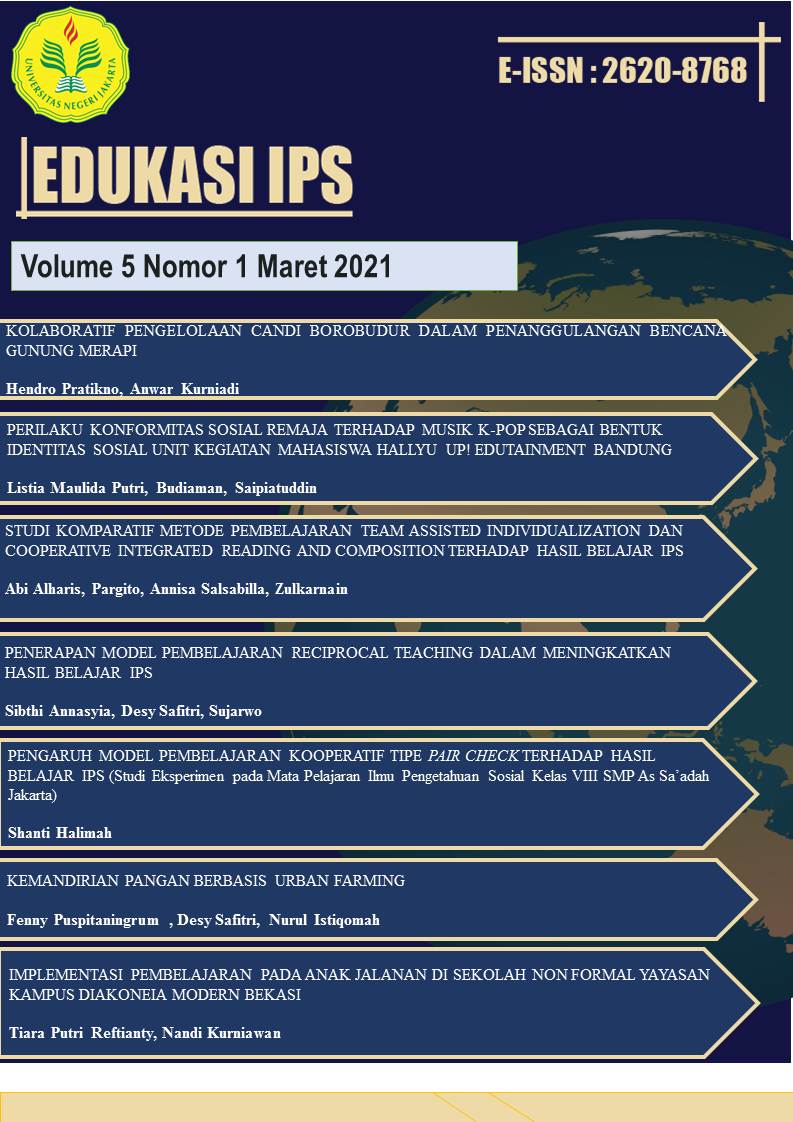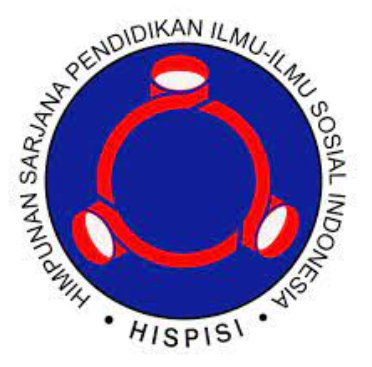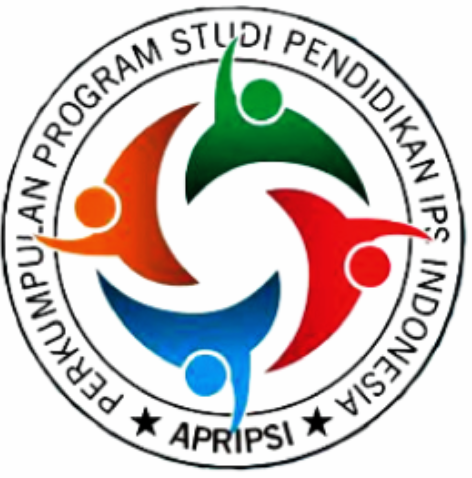IMPLEMENTASI PEMBELAJARAN PADA ANAK JALANAN DI SEKOLAH NON FORMAL YAYASAN KAMPUS DIAKONEIA MODERN BEKASI
DOI:
https://doi.org/10.21009/EIPS.005.1.07Keywords:
Implementation, Learning, Street ChildrenAbstract
ABSTRACT
This study aims to describe the implementation of learning at the Kampus Diakoneia Modern Foundation. The research method used is descriptive. Data collection techniques through interviews, observation, documentation and literature study. The subjects in this study were the head of alternative education foundations, teachers and students. The results of the study are: 1. Learning planning at the Kampus Diakoneia Modern Foundation is divided into 2 learning planning models, namely learning planning prepared by the teacher and learning planning prepared by students. 2. The learning implementation at the Kampus Diakoneia Modern Foundation consists of three stages, namely the pre-instructional stage / preliminary activities, the instructional stage / core activities and the evaluation stage / closing activities but the implementation of the three stages has not been carried out optimally. 3. Evaluation of learning at the Kampus Diakoneia Modern Foundation implements summative evaluation, which is an evaluation that is carried out at the end of the semester. Learning evaluation uses a literacy assessment rubric, a numeration assessment rubric, a product presentation assessment rubric and a 4C assessment rubric (critical thinking, collaborative, creativity, communication and problem solving). 4. Learning products of students at the Kampus Diakoneia Modern Foundation in the form of mind mapping, video presentation lessons, student learning reports for 10 weeks, pictures, paintings, musical instruments, making miniatures and others.
Keywords : Implementation, Learning, Street Children
ABSTRAK
Penelitian ini bertujuan untuk mendeskripsikan tentang Implementasi Pembelajaran di Yayasan Kampus Diakoneia Modern. Metode penelitian yang digunakan adalah deskriptif. Teknik pengumpulan data melalui wawancara, observasi, dokumentasi dan studi kepustakaan. Subjek dalam penelitian ini adalah kepala pendidikan alternative yayasan, guru mata pelajaran dan peserta didik. Hasil penelitian ini menunjukan bahwa: 1. Perencanaan pembelajaran di Yayasan Kampus Diakoneia Modern terbagi atas 2 model perencanaan pembelajaran, yaitu perencanaan pembelajaran yang disusun oleh guru dan perencanaan pembelajaran yang disusun oleh peserta didik. 2. Pelaksanaan pembelajaran di Yayasan Kampus Diakoneia Modern terdiri dari tiga tahapan yaitu tahap praintruksional/kegiatan pendahuluan, tahap intruksional/kegiatan inti dan tahap evaluasi/kegiatan penutup tetapi pelaksanaan ketiga tahapan tersebut belum dilaksanakan secara optimal. 3. Evaluasi pembelajaran di Yayasan Kampus Diakoneia Modern menerapkan evaluasi sumatif yaitu evaluasi yang dilakukan pada akhir semester. Evaluasi pembelajaran menggunakan rubrik penilaian literasi, rubrik penilaian numerasi, rubrik penilaian presentasi produk dan rubrik penilaian 4C (critical thinking, collaborative, creativity, communication dan problem solving). 4. Produk pembelajaran peserta didik di Yayasan Kampus Diakoneia Modern berupa mind mapping, video presentasi pembelajaran, laporan belajar peserta didik selama 10 minggu, gambar, lukisan, alat music, membuat miniature dan lain-lain.
Kata Kunci : Implementasi, Pembelajaran, Anak Jalanan
Downloads
Published
How to Cite
Issue
Section
License
Authors who publish with this journal agree to the following terms:
- Authors retain copyright and grant the journal right of first publication with the work simultaneously licensed under a Creative Commons Attribution ShareAlike License that allows others to share the work with an acknowledgement of the work's authorship and initial publication in this journal.
- Authors are able to enter into separate, additional contractual arrangements for the non-exclusive distribution of the journal's published version of the work (e.g., post it to an institutional repository or publish it in a book), with an acknowledgement of its initial publication in this journal.
- Authors are permitted and encouraged to post their work online (e.g., in institutional repositories, pre-prints sites or on their website) prior to and during the submission process, as it can lead to productive exchanges, as well as earlier and greater dissemination of published work







